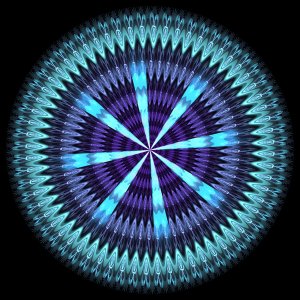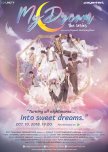
Esta resenha pode conter spoilers
What an utter piece of garbage and one of the few times I would be sitting there watching the end wished I could get the time I wasted watching this series. Character development is either being clubbed to death by the trope bat, or so wacky and out of this world it come off as completely unbelievable. For example, Runway (Best Cholsawas Tiewwanichkul) seems to be so immature for someone getting ready to complete high school he should be in a home care program for development issues. His mother (pity I can't find her listing in English, I could **ALMOST** sympathize with her plight) mysteriously goes through some form of single-mom depression that miraculously gets instantly cure by McGuffin pills. Tanai's (Taro Shatree Suwanvalaikor) interest in Runway seems to be completely bolt-on romance interest that when it comes to him being kissed by Guide (Fame Chawinroj Likitchareonsakul) it turns into a typical German soap opera trope of Love at First Kiss™, there's some nonsensical discomfort going on through the last third of the series.
The non-consentual sex/rape that's been implied for Yim (Ellfa Chollatee Bampen) is not only completely bad, it's clearly an insult to anyone that has suffered from rape when he kisses his rapist after the rapist said "he's sorry and he'll go away". Nope, no sir... this is done in Yoai that has rape fantasies in it, but in this sort of live-action story, it comes off as a COMPLETE travesty and unbelievable no matter how it's portrayed. Want a good idea on something more believable -- go watch Earth Katsamonnat Namwirote role as Tar in "Love by Chance" which is actually closer to something believable than this abomination.
The supernatural portions of the story were just plain bad... Dream (Fluke Pongsapat Kankam) is just another bolt-on Yaoi character complete with classic Turtleneck and Overcoat that seems to border too much on the pedophile than some sort of guardian spirit that came in a Dream Catcher. Elle (Choot Cherdchanin Vitapinan)/Kafe (Anna Glucks) needed more explanation for people and leaving it to interpretation simply left that to being a hot mess. The ring that Elle gave Runway was another McGuffin that really had no bloody purpose being interested in the story and Elle's magical powers that came later only make him come off more like some fox spirit out of Chinese Lore Yaoi.
But, as I said in the title; this was clearly a really badly executed story by a production house wanting to cash in on the BL fan-girl craze. Either the writers didn't know what the hell they were doing with it and had way too much in-fighting going on for the creativity, or the editor was seriously doing something that would get most people fired as too much was cut in the wrong places leaving this story with more holes than a wheel of swiss cheese.
Avoid this travesty at all cost. Because if you remove everything that was bolted on to it, you're left with a story about a boy that lost his dad and lives in some sort of fantasy world coping with that loss.
Esta resenha foi útil para você?
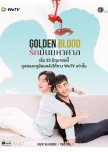
Esta resenha pode conter spoilers
I knew it was only a matter of time before there would be a BL "The Bodyguard" clone...
There, I said it. Basically this is like an LGBT/BL version of the 1992 film with (the late) Whitney Houston and Kevin Costner, and this clearly caught my attention enough to make the comparison.Skimming some of the other reviews here, and seeing the overwhelming disapproval of Sky (portrayed by Gun Napat Na Ranong), it didn't even dawn on me that he played Techno in the other series that I remember watching not too long ago: "Love By Chance". And they're not wrong -- other than a couple of scenes where Sky demonstrated anger towards Sun (portrayed by Boat Tara Tipa) -- he's really lackluster in the role. A MacGuffin that could have easily been replaced by any actor (or actress) for the purpose of the story.
The story itself is straightforward enough. Mafia Princess... err, I mean Prince... spoiled rotten and going to be used as a pawn in a cartel shift of power between Sky's father (portrayed by Oat Voravudh Niyomsap) and a rival mafia lord (portrayed by Kradum Thanayong Wongtrakul). Blah, blah, blah... seriously this plot was lifted from so many other movies and shows that you can practically sleep through is as it's more filler to the ongoing plot than the driving factor of the story...
Now to break it down to three categories
* The Good:
Gold Stars go to Boat Tara Tipa for being able to convey emotional depth through body language, facial expressions and even through eye and eyebrow expressions. In fact in one of the school scenes at the beginning of the series when Bank (portrayed by newcomer Tenon Teachapat Pinrat) said something that Sun didn't approve of, Sun gave a look that I saw my first boyfriend give someone that had threatened me at a nightclub a long time ago. And it's been more than 35 years since I've ever seen a similar look given by *anyone*.
More gold stars go to J-Chin (portrayed by Dai Setthasitt Limkasiddej) for being the sense and sanity that tied together what I had been suspecting going on with Sun between duty, honor, and obligation. Seeing the final scene with him brought back memories too intense to talk about casually here in a simple review. Needless to say, it bought a smile of bittersweet memory being triggered.
Interesting the placement of the magnetic hearts above and below the shirt between Sky and Sun. It was pretty clear to this Eastern Philistine who's heart was out in the open and who's was not... And it was doubly interesting how other than the scene which they exchanged the jewelry was one of the earlier times where they were both out.
Thank the producers and the powers that be that Toktaeng (portrayed by Jane Jaytiya Naiwattanakul) and Juno (portrayed by Apple Lapisara Intarasut) weren't manipulative, harpies, rakes or disruptive cows to the plot sabotaging everything for selfish reasons on where the main characters were trying to sort out their feelings. While such selfish women might spice up some stories for needlessly tropish-like drama, in this story, I guarantee they would've been a distraction to the plots and subplots currently going on with this series. Added points to the fact that when it was discovered, they exited stage left without so much as an F bomb or wishing curses and voodoo spells for not being told what was clearly in front of their noses. I just wished they bounced back better (like Qiu Qian Ru (played by Hana Lin) did in "HIStory 2: Crossing the Line") without all the tears and hand-wringing.
* The Bad:
Too many flashback clips through the last third of the episodes. Many of the other reviewers were complaining about the series being rushed, probably because they wanted to see more of it, but for me it was the opposite: too drawn out. And the reason why it was drawn out was because episodes 5, 6 and 7 had too many flashback scenes reminding us of the feelings that the main characters had for each other that they were being too obdurate (or too prideful) to admit to themselves and each other. Which brings me to another point...
...The love theme for the series. Once again, it's being hammered -- ad nausea, ad infinitum -- whenever and wherever it can be squeezed into. It should be something elicit positive feelings from the audience, not be hammered at them until they decide to pick up the single from whatever music outlet that can google.
* The (Truly) Ugly:
Product placement. Jeez, you'd think I'd've gotten used to it in Thai television (and even cinema), but after episode 5 (and DEFINITELY episode 8)... Ugh... it came all flooding back as badly as some of the sponsored commercials I remember seeing in old American 50s and 60s television serials. Sure, it hasn't been as ad as some of the series I've watched (like "Love by Chance" coming readily to the top of the list). I'm waiting until some of these companies try to cut into movies and shows with more advertising time, but until then -- it's just another cross to bear.
Overall, there's many elements that touched personal chords within me, dating back to the days when I first came out of the closet that are both fond and bittersweet, so my opinion would be heavily shaded by those memories. I just have to sometimes remember that stories told in a movie or a television series have to be told on rails from the beginning to a middle and and ending, instead of having the Infinite Possibilities that life and the spontaneity of it can't be interjected into weaving a story of the moment. Riding this series to the end, it's good to see that someone thought about a story that reflected something that happened in my life in its own way.
Esta resenha foi útil para você?
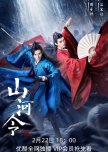
Esta resenha pode conter spoilers
A Couch Potato Review of the Series: Word of Honor.
I am going to warn early as this is also going to be posted on MyDramaList, I am not going to be a gushing fangirl with all sorts of lines like "OMG OMG OMG OMG this is the best Wuxia BL ever!!! (in spite of the high review I did give there). This is more a reflection of how far some countries have come when dealing with LGBT/BL story lines and how far some countries still have to go to accepting the 10%+ of the population that exists within its borders. I'm reminded to reinforce this concept as the late Mira Furlan once said as the character Delenn of Minbar, "...everywhere Humans go, they create communities out of diverse and sometimes hostile populations. It is a great gift and a terrible responsibility. One that can not be abandoned..."I have to say that after seeing the teaser for it in my recommended videos on YouTube's main page, I had mixed feelings of sitting there and watching yet another Chinese series that originally had a strongly BL theme to it. Since watching Guardian which also had a strong BL theme in the book and then turning it into a "friend-zone interest"/bromance my taste for these levels of censorship died in the 80s when I was already some years out of the closet and enjoying more positive and independent LGBT cinema works. In fact in my never-ending study in humanities and the aspects of human love regardless of sexuality, sexual identity and even proclivities, I have routinely found that out of all the countries that I have sampled stories involving LGBT/BL levels of relationship, China and Brazil seem to share a 60+ years in the past Hollywood mindset of killing off LGBT/BL characters to even stamping out through censorship and downplaying anything that might show as sexual tension or even sexual attraction between same sex characters.
Word of Honor carries with it all the typical plots and subplots, contrivances, tropes and hundreds of major and minor characters you'd expect of any Wuxia story. One of the protagonists -- Zhou Zi Shu (played by Zhang Zhe Han who I had first caught in another period piece called Legend of Yun Xi) -- is a disillusioned and disheartened leader of an imperial force called the Window of Heaven. He imposed on himself the same pain and agony he did while serving as the leader of Window of Heaven: the Nails of Seven Torments which are inserted into a Kung Fu Master's meridians thereby ensuring that he will only live no more than three years before dying in the sort of agony no one would want to have being deprived of all seven senses and the amount of pain being unbearable. The other protagonist -- Wen Ke Xing (played by Gong Jun who I will be looking into more in the future) -- that from a tragic past turns out to being the leader of the Ghost Valley (a place of criminals wanting to maintain their criminal lives without ever being part of the human world).
Pros
Wen Ke Xing's comments towards Zhou Zi Shu when they first met -- even when Shu was in disguise -- were overtly sexual compared to the heterosexual counterparts both in this story as well as other Wuxia stories I've watched. Not to mention the continued overtly sexual and flirtatious comments are definitely a step in the right direction when it comes to the censorship that China continues to maintain on LGBT/BL stories.
Zhou Zi Shu warms up to Ke Xing's flirtations and attention. While it becomes clear that this happens through prolonged exposure and coming to accept the fact that Ke Xing's not going to be going away, Shu seems more accepting of the budding relationship going on.
Zhang Cheng Ling's (played by Sun Xi Lun) acceptance of the relationship between Zhou Zi Shu and Wen Ke Xing without question or social stigmas reminds me of how many kids did the same thing when they found out that their fathers, fathers of friends and complete strangers they encounter in their life were gay or lesbians. This to me has always been a step in the right direction that the younger generations will always be more accepting than the older.
Extra points when it came to Wen Ke Xing's comments during the second Heroes Conference when he defeated Zhao Jing (played by Wang Ruo Lin) when confronted by all the leaders of the sects attending the Heroes Conference when they discovered he was the Leader of the Ghost Valley even after he was able to prove his lineage leads back to the destroyed sect from the Healer Valley. I don't often catch when the survivor of some made-extinct sect has been discovered to be the leader of the villains of the story, and his delivery of "where were all the allies when my father was killed" shamed everyone attending to humility a welcome addition I would like to see happen more. Because more often times than naught the lines between good and evil are not only black and white in Wuxia films -- they are as unchanging and unmalleable.
Zhao Jing being the center stage of true villainy within the story. Through 20 years of story and grievances, you find out he's the kingpin of all things evil going on within the story. Wang Ruo Lin pulls off such a character that people can just love to hate from beginning to middle to end as the story unfolds as to how he was involved with all the plots, counter-plots and ministrations that pulled everything together and apart through the majority of the story.
The almost Oedipus-like love/hate relationship between Zhao Jing and Prince Xie -- or Scorpion King -- (played by Li Dai Kun) going on since Xie's introduction was positively palpable when he discovered time and time and time again at just how much his godfather used him whenever his godfather could. The way that Li Dai Kun can make such a subtle expression come off as hurt and painful is an honor to his acting teacher and directors in this film. I could almost feel sorry for him as a villain given that his godfather used him every step of the way through this story.
The rich and intertwining stories going on with many of the supporting characters. Namely Liu Qian Qiao or Glamourous Ghost (played by Ke Nai Yu) with Yu Qiu Feng (played by Liu Han Yang), Xi Sang Gui or Tragicomic Ghost (played by Chen Sha Sha), Ye Bai Yi or Sword Immortal (played by Huang You Ming). This is the sort of story telling that can only make the world richer and more living than what westerners do with making the stories so main character-centered.
Ambivalence
I find myself not too keen on the use of the word Soulmate when describing these two (as well the minor set of characters from our Sages of An Xian (played by Yu Zi Kuan, Lu Chun Sheng, Zhang Zhi Wei, Tong Xiao Mei and Yu Zi Kuan) that seems to imply a more polyamorous relationship). While I understand that this might be Ciwen Media/Youku attempts at introducing the concept to China's mainstream audience in the same way that Longtime Companion (1989) introduced Significant Other to the English-Speaking mainstream, it's taking a phrase steeped in metaphysical and philosophical knowledge and trivializing it to a euphemism. As though people are that incapable to making the jump from their world into another.
The witless heroes and petty villains of this story. Namely Gao Chong (played by Hei Zi), Mo Huai Yang (played by Wang Bo Qing), Long Xiao (played by Wang Zi Run), his father Long Que (played by Zhang Shuang Li) and Wang Mo Xuan (played by Ren Xi Hong) who I'm sure they had better roles in the book written by Priest, but came off as nothing more than MacGuffins for continuing the story. While I understand that all of these examples are supporting roles to the main character, they seem to be more downplayed than expected and just show up when some plot device needs to be pushed forward and seemed to lack a richer back story I'd come to expect from many of the other characters we were introduced through the 36 episodes.
The occasional CG blunders that pulled me out of immersion and temporary suspension of disbelief. While I understand CG special effects with humans as objects is still in its toddler stage, there were moments when you could clearly tell it was a computer drawn image instead of the actor/actress. Fortunately for me, it wasn't the sort of routine occurrence I would expect from a low budget series so it didn't make me regret my decision to truck on with the series.
Cons
I must've missed some Eastern/Chinese Mores in the transformation from Shu pushing Ke Xing away from him because he was dying to accepting Ke Xing as a Soulmate to live with through the end of his days. Further there doesn't seem to be any indication what internal energies changes from Shu to actually see Ke Xing as a Soulmate he could never live without. In fact, because I might have missed the social queue that occurred, it comes off as an 180 degree change without any explained internalized decision how it changed from the character.
The anticlimactic way Zhao Jing was killed off during the avalanche at the end of the series. This painfully reminded me of so many books I've read and stories I've watched where the writers don't know what to do with a character/villain hanging by the wayside and instead of letting them be forgotten, choose to just wipe them out through some deus ex machina event to just remove them from the plot. While I might have cheered a moment because it removed a loose end, thinking about it later I would've much rather preferred he live out the rest of his days as a mute invalid.
The transformation from pained and tormented villain Prince Xie to two-dimensional and even more petty villain he became fawning over his mute and invalid father while trying to prove just how much of a villain he was and how his father underutilized him through much of the story. If there was a reason to use a dues ex machina to remove a character -- I would've voted for Prince Xie instead of his godfather Zhao Jing, because it's clear from a story telling standpoint, he would be used in future stories in some way or another.
The insane way that the theme song for Zhou Zi Shu and Wen Ke Xing gets hammered into the scenes at every frelling opportunity. While I appreciated the extra work that was done for translating everything in the movie (from dialog to street signs to the plaques in the internal scenery, which is definitely more a pro than a con), the fact that the song had to be translated every bloody time it played along with the song playing through several stanzas was enough for me to be off-put wanting to find it. It's one thing when Chen Wei Ru's Rice Omelet of Love was used at the beginning of the episodes of HIStory 2: Right or Wrong and a plus when it was used in instrumental form through some of the series... To have it play complete with Lyrics so routinely as to try to artificially manipulate the heartstrings of the audience comes off instead as cheap and cash-grabbing.
The 1950s attitude that EVERYTHING needs to have a tidy ending. Villains are vanquished and dead. Questionable characters defeated and given the choice to live outside of the world they were introduced never to be seen again or killed for their loyalty to villainy, and heroes -- other than the protagonists (that will come with the bottom line) -- live happy and prosperous. Further, this particular series heavily relies on Shakespearean-like plot tropes of killing off even minor characters if they transgressed against the fealty and filial of their family and/or their Sect Leader. This is why I usually go looking for indie films and series instead; because with them at least they attempt to make it as gray a world and as messy as life can be as possible.
Bottom Line: While it's clear that it was written in such a way that even the protagonists were going to suffer in the Shakespearean-like way where a non-heterosexual couple has to pay some sort price because it's not the "norm", with enough of the Eastern/Chinese Mores learned, coupled with some attention to details that cropped up during the last episode of this particular series, I was able to do what I've been doing since I was a toddler. Make the ending the way I wanted it to be. Because of that, even with the twists and turns that were introduced to the story, coupled with how many pros there were to cons (listed and unlisted), I found this to being an enjoyable romp through a Costumed, Wuxia, Period Piece. I might go looking for the epilogue to confirm my suspicions. Whether I re-watch it remains to be seen.
One notable afterthought that comes to mind deals with Wu Chang Gui or the Changing (Impermanence) Ghost (played by Xue Fei). I was incredibly impressed with the vocal resonance which Xue Fei used when he was speaking his lines. While I can't seem to find any interviews to confirm whether that was his normal speaking voice or if he pitched it specifically for the role -- I'm off to watch a couple of movies he did support roles to confirm my suspicions.
Esta resenha foi útil para você?
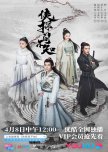
This is one series that teaches, "don't go in with preconceived notions"
Imagine something like "Murder, She Wrote" or -- if you're old enough "Ellery Queen" -- meets a Wuxia show and you basically have the premise for this series.Jian Bu Zhi (played by Tim (Ji Wei) Yu) is a man trying figure out the mystery of the murder of his father in his hometown and he has 4 people that were there that could hopefully give him the information for his father's fate. In his search for these people he frequently encounters death and murder and because he is incapable of learning Kung Fu (for reasons that weren't apparently through most of the series), instead uses his keen mind in deducing the clues left to figure out who did the killing in setting he's currently in.
Along the way he makes friends with Zhao Wo Huan (played by Wang Yan Yang), has a love interest Zhan Shi Qi (played by Rachel (Ruo Shan) Wang) and an assortment of others in the typical Wuxia/Custom Drama way that unlike series like "Nirvana in Fire" or "Battle Through the Stars"; "Ancient Detective" was a mere 41 main and supporting characters which were easy enough for this casual Wuxia fan to keep track of **and** remember all their back stories.
While I was somewhat off-put by the almost 1950s-like method of collecting the facts, having Yu look at one person that seemed to indicate was the culprit, only to turn to someone else and accuse them instead; by the second murder mystery plot (the one at the inn), I learned that all the evidence was clearly displayed for the audience to deduce who the killer was and all the audience would have to do is come to their own conclusions and then wait until Yu confirmed all the facts collected.
I was also impressed that in spite of the clear roles for many of the characters (from the assassins/information gatherers from the Ten Killing Gate) to the main and secondary characters, human nature prevailed through each of the character's introductions and interludes for their back stories given them a richness that allowed me the ability to immerse myself into the world and their influence on it and forget for more than a few moments that I was watching a series online. Also I would like to thank @ChineseDramaFan for their review as it included what the character names meant which gave it an added treat as to the irony of their characterizations.
This is a series that reminds me of the following quote: "...We are star stuff, we are the universe, made manifest, trying to figure itself out. As we have both learned, sometimes the universe requires a change of perspective..." And while the murder mysteries were in fact cut and dry thanks largely to the evidence presented, the characters being human are not. There's elements of good and evil, right and wrong, and a whole lot of gray area in all of the characters in this show. Because of this gray area, it strongly allowed for personal interpretation and personal attachments based on emotional chords. Case in point Madam Hei Wu (played by Peng Bo). While he came off like the stereotypical bitter queen of Western Archetypes, in judging that book by it's cover I learned how wrong I was about his attitude and that in spite of his bitter veneer underneath he was nothing more than a misunderstood compassionate healer spurned by the stereotyping society dished in his direction.
While not spoiling anything really, I have to say that I was surprised that not all the facts were presented until the end and because of this, I'm reminded of another quote I love seeing in action in shows (like this one), "...you're going to find that many of the truths we cling to depend greatly on our own point of view..." I skimmed some of the other reviews and them requesting another season for this show, and I find myself in disagreement with the sentiment. Sometimes leaving something to the imagination of the viewer is better than explaining it in a second season. This being no exception of that rule.
Esta resenha foi útil para você?
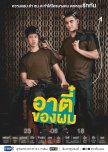
At first it seemed to be going in the right direction, story was a bit cliche and predictable in the BL region, but this story quickly falls apart thanks to poor editing and mediocre writing. There were several parts in the story that made no sense and it left me wondering if I missed some social more I hadn't been taught in my time in the east... Or whether it was simply really **really** bad editing/direction. I went with bad editing and buckled in for as long as I could...
I wanted to sympathize with the environment the characters were thrust into; but simply couldn't because the important bits were either poorly executed, or ended up on the cutting room floor. It left the main characters coming off as either schizophrenic or inconsistent. At episode 5, I remember talking to my family and asking, "was I that screwed up as a teenager?" While my mother laughed and said, "there were times I wondered..." Overall, I can say that with all the things that happened in my life -- at least it was more consistent than this story.
When it comes to the acting, an actor can only take his cues from the director and on-set script direction (writers sometimes, other times it's an assistant to the writer). Both Sattabut and Samthonglai often seem to be uncomfortable with what was being given to them and did their best. This is further exacerbated by the fact that most pieces are filmed out of order, leaving the actors incapable of injecting any personal bias for the overarching story. Because of this, it often felt rushed as they didn't seem to have time to draw their own conclusions or pull from their own experiences as teenagers.
The writing had moments of pure inspiration, but most times I found myself questioning what the point of the adaptation was. Bambi was the worst when it came to character development and seemed nothing more than some window dressing to try to push the plot forward. Sometimes she was a trope villain, other times she was saviour to the weird relationship between Mork and Tee. The fake relationship between Mork and Tee at the beginning was nothing more than a sketch or a farce and seemed to disappear quickly as the story unfolded. Tee's purpose through the whole of the story seemed as mystifying and as confusing as someone trying to herd cats. As for Mork's? Well... And the message of "love knows no limits of gender" was quickly buried in quagmires of traditional and modern dysfunctions against homosexuality. The secondary characters of Morn and Gord were more a bait and switch for the poor story of the main characters and should have either gotten their own story or completely written out.
About the only thing I was left with through most of my watching was, Mokr and Tee have more history than what was hinted at in the flashbacks. And while I see there's a prequel in the works/release... If it has the same director and writing staff; I believe it's in my best interest to leave it to my imagination. At least can put together a better plot.
Sound quality had several serious WTH moment leaving me wondering whether sections of the audio tracks were re-recorded because of poor rushes checking, or whether the production squandered their budget on other things than filming . Because during editing, someone might realized that the dialog was lost to wind or distance. On more than one occasion, I got the distinct impression that the actors were wearing their microphones as the scraping of pillows and other objects they were holding had interfered with the scene, causing me to lose immersion.
Admittedly I gave up at episode 7. The Story telling was too painful for my sensibilities. Those that got to the end, I salute you. This crotchety old critic would prefer something better to watch.
Esta resenha foi útil para você?
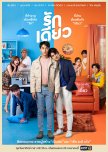
And people say Vaudville and Bad 60s Sitcoms are dead...
...They apparently haven't headed over to the other side of the Pacific to see that they're alive and well and residing in Thailand. Because this is the stereotypical epitome of that complete with sound effect/sound-board zingers and horribly canned laugh tracks in all the wrong places.I went stumbling across this one after attempting to watch Demigods and Semi-Devils, which I dropped when I got to the point where the story ended up being one big Chinese tropes of children being friends with their parents not only bickering and fighting against each other, but hiding the truth of their sexual adventures (and misadventures) in the process.
This one was easy to figure out -- and quickly too. Further, it's not even worth the time to even synopsis as it can be figured out in less than the first 10 minutes of the pilot/first episode.
I really tried to like it because it sort of reminded me of the 1970s Odd Couple (with Tony Randall and Jack Klugman) with a BL sort of twist, but between the sound-board zingers, and the artificially bad laugh-tracks, I found myself more disgusted with the paltry and shallow attempts to make this into an end of the episode status quo trope of shallow and mediocrely stereotypical attempts at humour.
Extra bad marks go to the writer -- Kate Pimmada Pattana-alongkorn -- for making the only out gay character of the show (played by Aim Witthawat Rattanaboonbaramee) the sort of disgustingly bad 80's so-outrageously-and-flamboyantly-out-and-forever-alone and never will be with a boyfriend character that Americans still struggle to face, accept and deal with when it comes to an actor with dangly bits instead of internal plumbing. The continued bad marks go to **not remotely** dealing with the continued social stigmas for LGBT folk in Thailand (and Asia), and making Rak (played by Earth Thanakrit Talasopon) and Daio (played by Win Songsin Jaipan) so heteronormative and yet so stereotypical in the whole seme/uke dynamic. If anything, it feels like just cookie cutter attempt to rake in the cash from bored teenage girls wanting to fantasize more man on man action that's either not going to go anywhere, or will continue to play along to making these teenage girls keep watching and keep slamming them with sponsored products until they either get bored, or the writers and producers will have to put up or shut up to keep them watching.
A special nod goes to Uncle Jod (played by Yong Chernyim) for making me think of the Central American sitcom of the 70s "El Chavo del Ocho" complete with vaudevillian slapstick and outrageous comedy.
Overall, I'm through with this... I wish Earth Thanakrit Talasopon and Win Songsin Jaipan all the best of luck... It's clear this is their first "major" role and Comedy is never easy to go into for actors trying to cut their teeth in show business. Comedy requires timing, and it's clear that they're trying to find their way with a crew of people writers and scripts thrown at them in a weekly format.
I'd rather watch "Boy Next Door" (2017). Now those two (Choi Woo Shik and Jang Ki Yong) had better timing without the need for zingers and laugh tracks.
Esta resenha foi útil para você?

